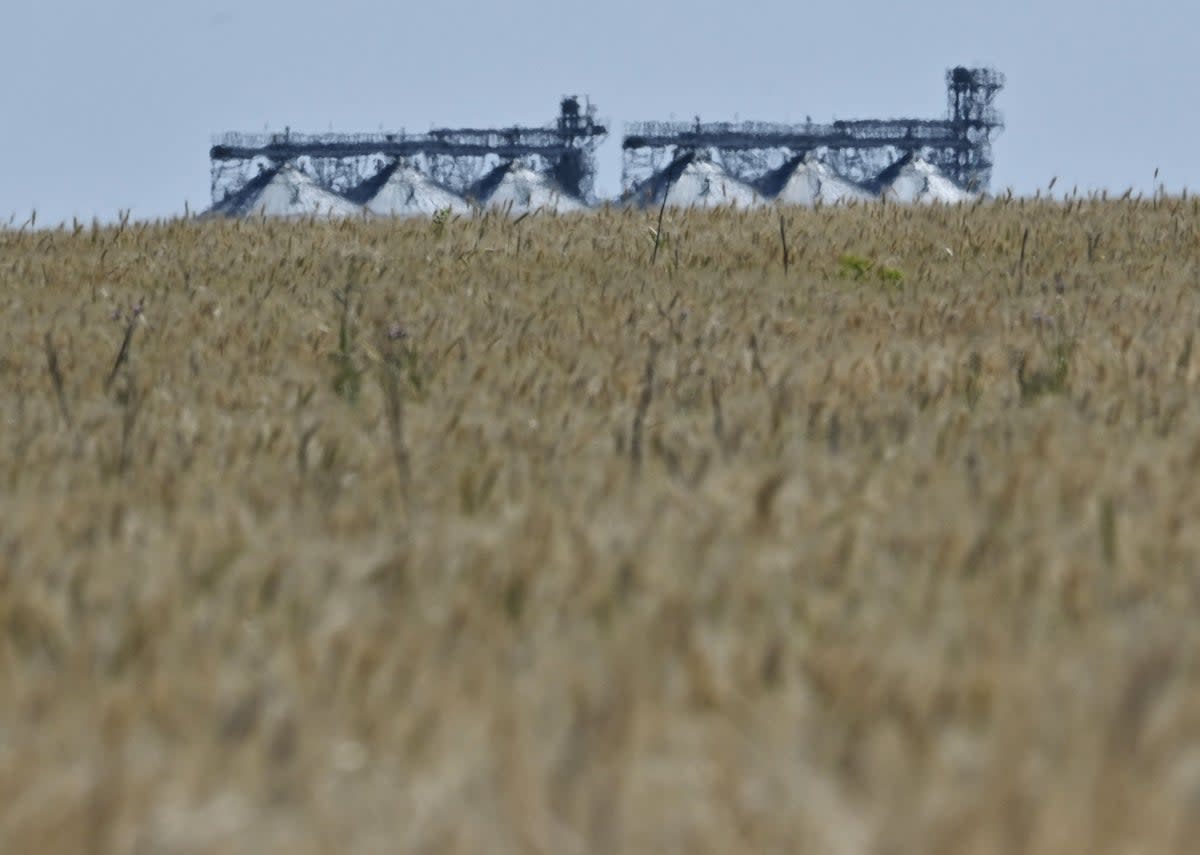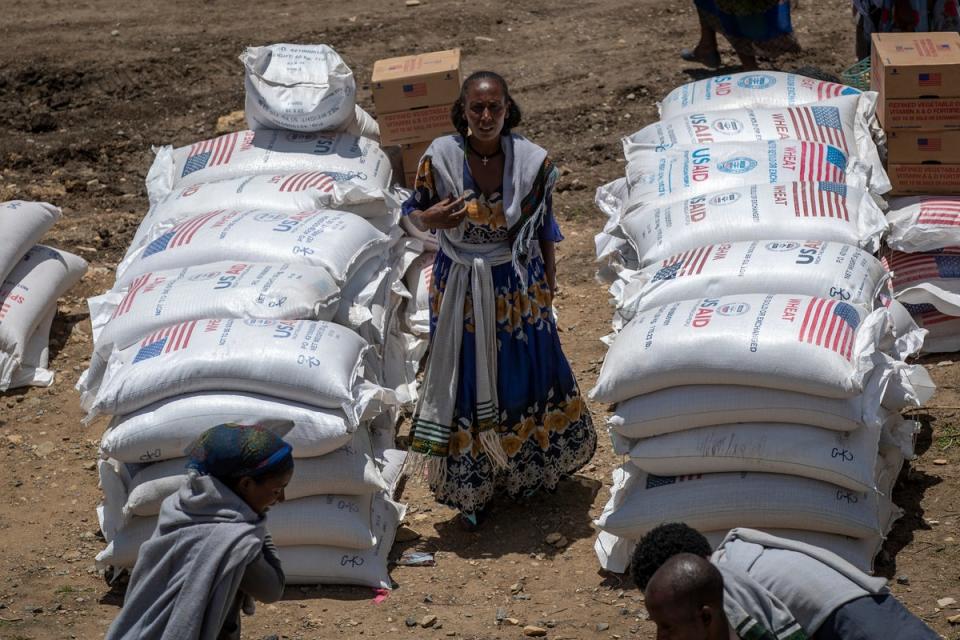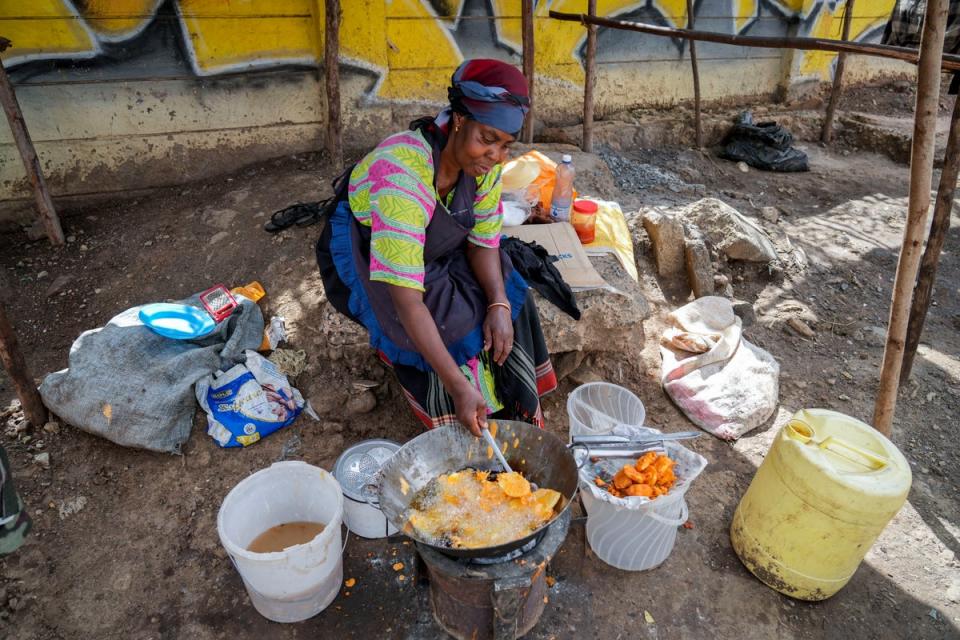Ukraine war helps push 71 million into poverty due to soaring food and oil prices, UN says

- Oops!Something went wrong.Please try again later.
Since Russia’s invasion of Ukraine a further 71 million people have been dragged into poverty due to skyrocketing food and energy prices, according to a new UN report.
Just three months after Vladimir Putin’s forces invaded the neighbouring country in February, a staggering 51.6 million people were living off $1.90 (£1.60) a day or less, the United Nations Development Programme (UNDP) has estimated.
An additional 20 million had slipped below the poverty line of $3.20 a day, said the UNDP.
Extensive economic sanctions imposed on Russia, combined with Ukraine’s blocked ports and inability to export grain, has pushed up the price of fuel and staple food items such as wheat, sugar and cooking oil.
In low-income countries, families spend 42 per cent of their household income on food, so the impact has been most keenly felt by those already struggling with poverty.
“The cost of living impact is almost without precedent in a generation... and that is why it is so serious,” said UNDP administrator Achim Steiner at the launch of the report.

Some of the countries hardest hit by inflation include Haiti, Argentina, Egypt, Iraq, Turkey, the Philippines, Rwanda, Sudan, Kenya, Sri Lanka and Uzbekistan.
In countries such as Afghanistan, Ethiopia, Mali, Nigeria and Yemen, the impacts of inflation are even harder for those already at the lowest poverty line.
The total number of people living in poverty, or who are vulnerable to poverty, stands at more than five billion, or just under 70 per cent of the world’s population.
Another UN report released on Wednesday said world hunger rose last year, with 2.3 billion people facing moderate or severe difficulty obtaining enough to eat – and that was before the war in Ukraine.
The World Bank has also previously warned of a “human catastrophe” driving hundreds of millions of people into poverty if governments do not take swift action.

To alleviate the poverty, the UNDP recommends that, rather than spending billions on blanket energy subsidies, governments instead reach those worst affected through cash transfers that could prevent a further 52.6 million people from falling into poverty at $5.50 a day.
For cash-strapped and debt-laden developing countries to achieve this, the UNDP called for an extension of the debt payment moratoriums that had been in place during the Covid-19 pandemic among the world’s richest nations.
Mr Steiner said doing so would be not only an act of charity but also “an act of rational self-interest” to avoid other complex trends, such as economic collapse in countries and popular protests already taking place in communities across the world.
Before the war, Russia was the world’s largest exporter of natural gas and the second biggest exporter of crude oil.
Russia and Ukraine combined accounted for almost a quarter of global wheat exports and more than half of sunflower oil exports.
Additional reporting by Associated Press
The Independent has a proud history of campaigning for the rights of the most vulnerable, and we first ran our Refugees Welcome campaign during the war in Syria in 2015. Now, as we renew our campaign and launch this petition in the wake of the unfolding Ukrainian crisis, we are calling on the government to go further and faster to ensure help is delivered. To find out more about our Refugees Welcome campaign, click here. To sign the petition click here. If you would like to donate then please click here for our GoFundMe page.

